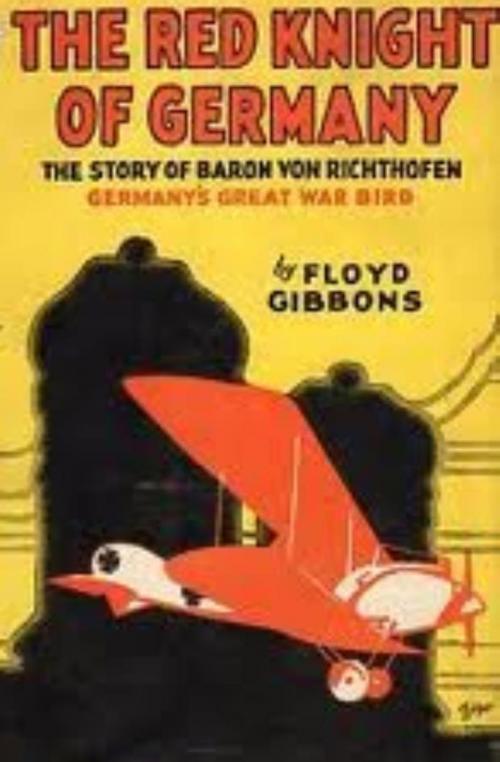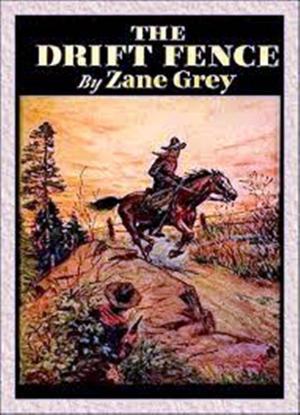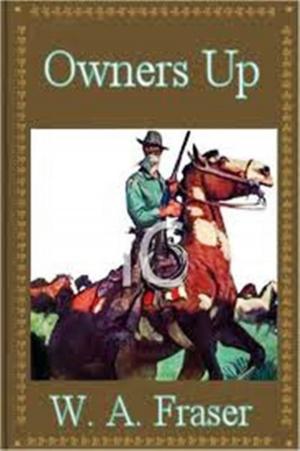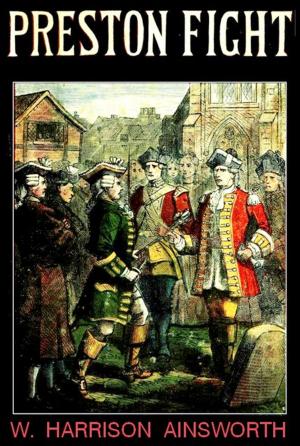The Red Knight of Germany
The Story of Baron von Richthofen, Germany's Great War "Bird"
Biography & Memoir, Literary, Historical| Author: | Floyd Gibbons | ISBN: | 1230000193223 |
| Publisher: | WDS Publishing | Publication: | October 30, 2013 |
| Imprint: | Language: | English |
| Author: | Floyd Gibbons |
| ISBN: | 1230000193223 |
| Publisher: | WDS Publishing |
| Publication: | October 30, 2013 |
| Imprint: | |
| Language: | English |
To kill and kill and kill was the cry. To burn, to destroy, to devastate, to lay waste. Men heard the madness and knew it for madness and embraced it, some with fear and some with joy. Kill or be killed. Survive or perish.
Pink, yellow, and green patches on maps personified themselves. The personifications glared at one another, then snarled, then cursed. Millions of hearts heard and beat faster. Males strutted; females loved them for it.
It was the march beat of tramping feet. It was the sharp staccato of steel-shod hoofs. It was the whir and growl of speeding motors. It was the shriek and roar of troop trains frontward bound.
His mother had not raised him to be a soldier.
She had made him wear curls and dressed him in white pretties. He had looked like a girl, and hated it.
Then came killing time--war.
He killed a hundred men in individual combat: shot them, burned them, crushed them, hurled their bodies down to earth.
He became the terror of the battle fronts. He grinned at grim death in a hundred duels above the clouds. He fought fair, hard, and to kill, and the better his foeman fought to kill him, the better he liked him for it.
{2}
He shot down eighty fighting planes. He matched his life against that of any man. He fought, not with hate, but with love for fighting. It was his joy, his sport, his passion. To him, to dare and to die was to live. He had the courage to kill and be killed, and war was his hunting licence. On home leave from man-killing at the front, he hunted and killed deer, elk, boar, bison, and birds, and brought their heads to his mother's home.
He was courageous and knew it, gloried in it, flaunted it with his challenge to the world of his enemies. He made them know him--he put his name on their lips--his name that was unknown, unheard of, when he started the war as a second "looie."
Wounded and decorated, he became the guest of kings and queens. Boys and the youth of a nation made him their idol, cheered him, followed him on the street.
He was young and blond, shy and handsome, proud and serious. Girls by the thousands worshipped his picture and filled his mail with letters by the sackful. One of them he loved. He wanted to make her his wife, but he did not want to make her his widow. He knew he was going to be killed.
He won the admiration and respect of his enemies. His instinct and duty it was to kill them; he did. Their duty and instinct it was to kill him; they did.
In one of the greatest air battles in the history of the world, he went down, still fighting, still killing. He died a national hero at the head of his fighting men in the service of his country. He was buried by his enemies with respect and military honours in unstinted recognition of his great courage, his sportsmanship, and his tireless, relentless spirit.
His name was Manfred von Richthofen.
Into the grisly story of the World War there came a refreshing gleam of the chivalry of old, when the pick of the flower of youth on both sides carried the conflict into the skies. Into that Knighthood of the Blue, Richthofen has {3} been given a place of highest merit by those he fought with and against.
His life and death, his victories and his defeat, his loves, his hopes, his fears bring a new record to the halls of that same Valhalla in which rest the spirits of Guynemer, Hawker, Ball, McCudden, Immelmann, Lufberry, Quentin Roosevelt, and many others who fought aloft and died below with hearts that held emotions other than hate.
To kill and kill and kill was the cry. To burn, to destroy, to devastate, to lay waste. Men heard the madness and knew it for madness and embraced it, some with fear and some with joy. Kill or be killed. Survive or perish.
Pink, yellow, and green patches on maps personified themselves. The personifications glared at one another, then snarled, then cursed. Millions of hearts heard and beat faster. Males strutted; females loved them for it.
It was the march beat of tramping feet. It was the sharp staccato of steel-shod hoofs. It was the whir and growl of speeding motors. It was the shriek and roar of troop trains frontward bound.
His mother had not raised him to be a soldier.
She had made him wear curls and dressed him in white pretties. He had looked like a girl, and hated it.
Then came killing time--war.
He killed a hundred men in individual combat: shot them, burned them, crushed them, hurled their bodies down to earth.
He became the terror of the battle fronts. He grinned at grim death in a hundred duels above the clouds. He fought fair, hard, and to kill, and the better his foeman fought to kill him, the better he liked him for it.
{2}
He shot down eighty fighting planes. He matched his life against that of any man. He fought, not with hate, but with love for fighting. It was his joy, his sport, his passion. To him, to dare and to die was to live. He had the courage to kill and be killed, and war was his hunting licence. On home leave from man-killing at the front, he hunted and killed deer, elk, boar, bison, and birds, and brought their heads to his mother's home.
He was courageous and knew it, gloried in it, flaunted it with his challenge to the world of his enemies. He made them know him--he put his name on their lips--his name that was unknown, unheard of, when he started the war as a second "looie."
Wounded and decorated, he became the guest of kings and queens. Boys and the youth of a nation made him their idol, cheered him, followed him on the street.
He was young and blond, shy and handsome, proud and serious. Girls by the thousands worshipped his picture and filled his mail with letters by the sackful. One of them he loved. He wanted to make her his wife, but he did not want to make her his widow. He knew he was going to be killed.
He won the admiration and respect of his enemies. His instinct and duty it was to kill them; he did. Their duty and instinct it was to kill him; they did.
In one of the greatest air battles in the history of the world, he went down, still fighting, still killing. He died a national hero at the head of his fighting men in the service of his country. He was buried by his enemies with respect and military honours in unstinted recognition of his great courage, his sportsmanship, and his tireless, relentless spirit.
His name was Manfred von Richthofen.
Into the grisly story of the World War there came a refreshing gleam of the chivalry of old, when the pick of the flower of youth on both sides carried the conflict into the skies. Into that Knighthood of the Blue, Richthofen has {3} been given a place of highest merit by those he fought with and against.
His life and death, his victories and his defeat, his loves, his hopes, his fears bring a new record to the halls of that same Valhalla in which rest the spirits of Guynemer, Hawker, Ball, McCudden, Immelmann, Lufberry, Quentin Roosevelt, and many others who fought aloft and died below with hearts that held emotions other than hate.















